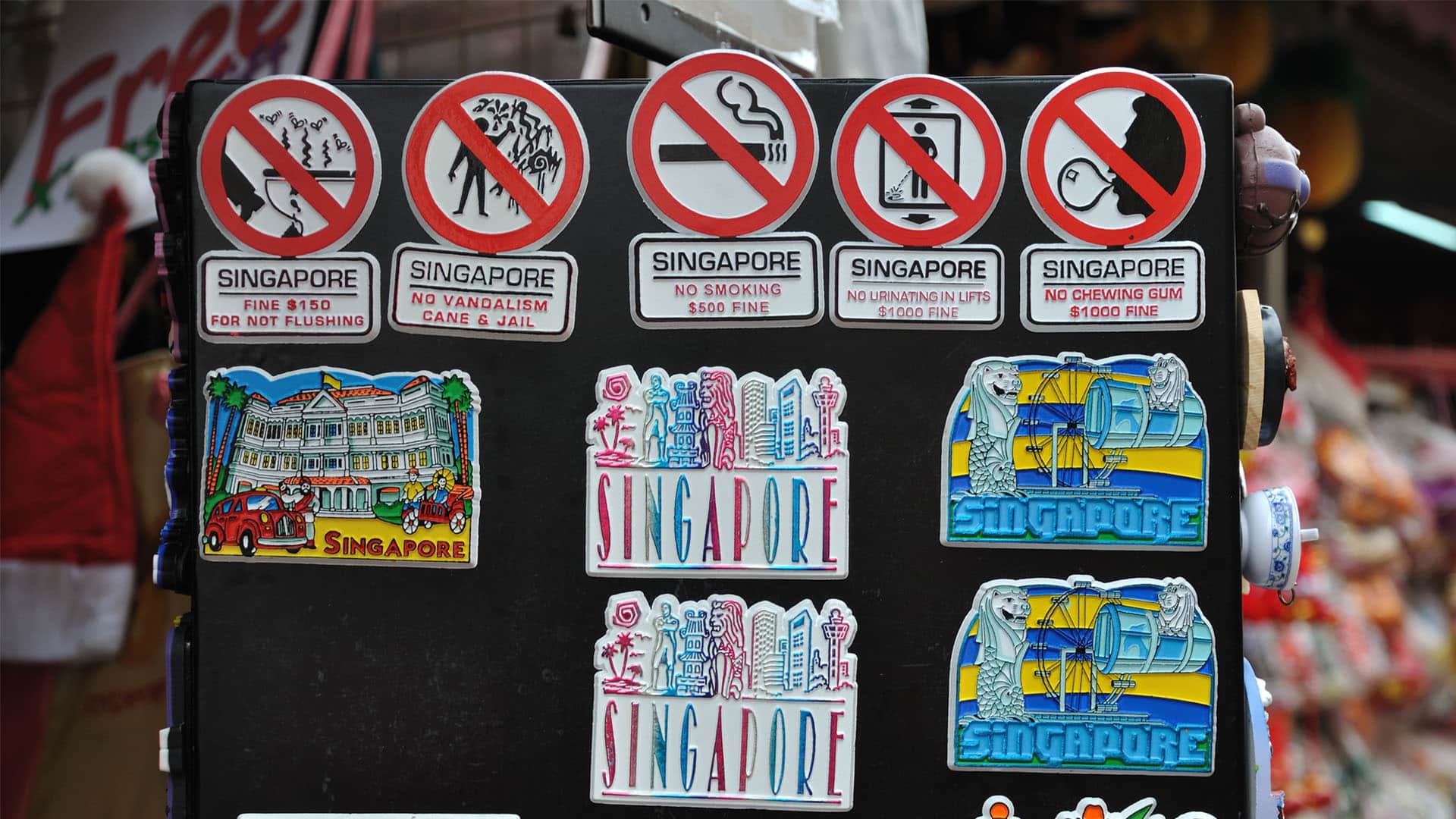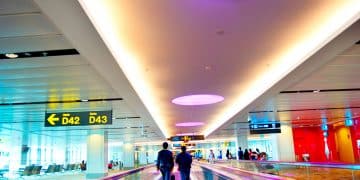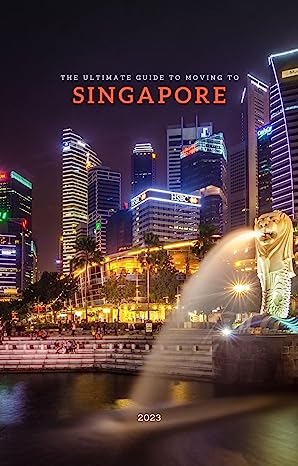Chewing gum is banned in Singapore due to the damage it can cause to public property and the challenges it poses in maintaining cleanliness in public spaces. The ban, which was implemented in 1992, has been largely successful in reducing instances of gum being stuck in door hinges, on public benches and tables, and other areas. In addition to the aesthetic concerns, there are also health considerations, as swallowed gum can cause digestive issues. While the chewing gum ban may be inconvenient for some, it ultimately serves the greater good by promoting cleanliness and public hygiene in Singapore.
History of chewing gum ban in Singapore
The chewing gum ban in Singapore has a long and interesting history. The sale of chewing gum was first restricted in Singapore in the early 1980s, when the government imposed a tax on the importation of gum in an effort to reduce litter. However, the problem of discarded gum persisted, and in 1992 the government implemented a complete ban on the sale and importation of chewing gum.
The main reason for the ban was to address the damage caused by gum to public property. Gum was frequently found stuck in door hinges, on public benches and tables, and in other areas, and removing it was time-consuming and costly. In addition to the aesthetic concerns, there were also health and safety considerations, as swallowed gum can cause digestive issues and the sticky residue left by gum can be a hazard, particularly on stairs and other high-traffic areas.
The chewing gum ban was controversial at the time, with some people criticizing it as an infringement on personal freedom and others arguing that it would have a negative impact on the gum industry. However, the ban has been largely successful in reducing instances of gum litter, and it has become a widely accepted and enforced policy in Singapore.
Reasons for chewing gum ban in Singapore
There are three main reasons for the chewing gum ban in Singapore…
Damage to public property
One of the main reasons for the chewing gum ban in Singapore is the damage that gum can cause to public property. When gum is discarded on the ground or stuck to surfaces such as benches and tables, it can be difficult and costly to remove. Gum stuck in door hinges, for example, can cause doors to malfunction, while gum left on public benches and tables can make them unsightly and difficult to use. In addition, the sticky residue left by gum can be a hazard, particularly on stairs and other high-traffic areas.
Difficulty in cleaning and maintaining public spaces
The ban on chewing gum in Singapore is also intended to make it easier to maintain cleanliness in public spaces. Gum litter can be unsightly and can make an area look dirty, even if it has been recently cleaned. Removing gum from surfaces can be time-consuming and costly, as it requires specialized cleaning methods and materials. By banning gum, the government hopes to reduce the amount of time and resources that need to be dedicated to cleaning up gum litter.
Health concerns
Another reason for the chewing gum ban in Singapore is the health concerns associated with swallowed gum. While chewing gum is generally safe to consume in small amounts, swallowing large amounts of gum can cause digestive issues, such as abdominal pain and constipation. In rare cases, swallowed gum can also cause more serious health problems, such as blockages in the intestines. The chewing gum ban in Singapore aims to reduce the risk of these issues occurring.
Overall, the chewing gum ban in Singapore is intended to protect public property, maintain cleanliness in public spaces, and address health concerns. While it may be inconvenient for some people, it serves the greater good by promoting a clean and hygienic environment in Singapore.
Exceptions to the chewing gum ban in Singapore
While over-the-counter chewing gum is banned in Singapore, there are several exceptions to the rule…
Medical and dental gum
One exception to the chewing gum ban in Singapore is medical and dental gum, which is allowed with a prescription. Medical gum, also known as therapeutic gum, is used to treat a variety of conditions, including dry mouth, jaw pain, and teeth grinding. Dental gum, on the other hand, is used to improve oral hygiene and prevent dental problems, such as gum disease and tooth decay.
In order to obtain medical or dental gum in Singapore, individuals must have a prescription from a licensed medical practitioner or dentist. The prescription must specify the type and quantity of gum that is needed, and it must be presented to a pharmacist in order to purchase the gum. Medical and dental gum is typically more expensive than regular chewing gum, and it is only available at pharmacies and other licensed outlets.
Gum used in therapeutic, oral hygiene, or industrial purposes
Another exception to the chewing gum ban in Singapore is gum used for therapeutic, oral hygiene, or industrial purposes. This includes gum used in products such as chewing tobacco, nicotine gum, and gum used in the production of rubber and plastics. In order to import or sell these types of gum in Singapore, a license is required from the Ministry of Health.
Examples of gum used in therapeutic, oral hygiene, or industrial purposes include:
- Chewing tobacco gum: This type of gum is used to deliver nicotine to the body and is typically used as a replacement for cigarettes. It is only available with a prescription and is subject to the same regulations as other tobacco products.
- Nicotine gum: Similar to chewing tobacco gum, nicotine gum is used to deliver nicotine to the body and is often used as a smoking cessation aid. It is available with a prescription and is subject to the same regulations as other nicotine products.
- Rubber and plastic gum: Gum is used in the production of rubber and plastic products, such as tires and molded plastic parts. In order to import or sell gum for these purposes, a license is required from the Ministry of Health.
Overall, the exceptions to the chewing gum ban in Singapore are intended to allow for the use of gum for medical, dental, and industrial purposes, while still maintaining the overall ban on chewing gum in order to protect public property and maintain cleanliness in public spaces.
Reception of chewing gum ban in Singapore
Generally speaking the people of Singapore are supportive of the ban in Singapore, however, like in most areas of life, not everyone agrees.
Support for the ban among Singaporeans
The chewing gum ban in Singapore has been largely well-received by the general public, with many Singaporeans expressing support for the measure. According to a survey conducted by the Ministry of the Environment and Water Resources in 2006, more than 80% of Singaporeans supported the ban, with many citing the damage caused by gum to public property and the difficulties in maintaining cleanliness in public spaces as the main reasons for their support.
Criticisms of the ban
Despite the general support for the chewing gum ban in Singapore, there have been some criticisms of the measure. One common criticism is that the ban limits personal freedom and choice, as individuals are not allowed to purchase or consume chewing gum unless they meet the exceptions outlined in the ban. Some people have also argued that the ban has had a negative impact on the gum industry, as the sale and importation of chewing gum is prohibited in Singapore.
Other criticisms of the chewing gum ban in Singapore include:
- The ban does not address the root causes of gum litter: Some people have argued that the ban does not address the underlying reasons why people dispose of gum improperly, such as a lack of education or a lack of trash bins.
- The ban is overly restrictive: Some people have argued that the ban is too restrictive and that there are less drastic measures that could be taken to address the problem of gum litter, such as fines or education campaigns.
- The ban is difficult to enforce: Some people have argued that the ban is difficult to enforce, as it is difficult to distinguish between legal and illegal gum.
A unique rule
Singapore’s chewing gum ban is relatively unique compared to other countries, as most countries do not have a complete ban on chewing gum. In the United States, for example, chewing gum is widely available and is not subject to any significant restrictions. However, there are some cities in the United States, such as San Francisco, that have implemented bans on certain types of gum, such as gum containing plasticizers, due to concerns about litter and environmental impacts.
Overall, the reception of the chewing gum ban in Singapore has been mixed, with some people supporting the measure and others criticizing it. While the ban has been largely successful in reducing instances of gum litter, there are those who believe that alternative approaches, such as fines or education campaigns, would be more effective in addressing the problem.
Comparison to other countries
Singapore’s chewing gum ban is relatively unique compared to other countries, as most countries do not have a complete ban on chewing gum. In the United States, for example, chewing gum is widely available and is not subject to any significant restrictions. However, there are some cities in the United States, such as San Francisco, that have implemented bans on certain types of gum, such as gum containing plasticizers, due to concerns about litter and environmental impacts.
In other countries, chewing gum is regulated in different ways. In the United Kingdom, for example, chewing gum is not banned, but it is subject to a tax, which was implemented in the 1990s as a way to reduce litter. In Australia, chewing gum is not banned, but it is subject to labeling requirements and regulations governing the ingredients used in the production of gum.
Overall, the approach to regulating chewing gum varies widely from country to country. While Singapore’s complete ban on chewing gum is relatively unusual, it has been largely successful in reducing instances of gum litter and promoting cleanliness in public spaces. Other countries have taken different approaches to regulating gum, such as taxes, labeling requirements, and ingredient regulations, as a way to address the issue of gum litter and other concerns.
Why Is Chewing Gum Banned In Singapore? – Key Takeaways
In summary, the chewing gum ban in Singapore was implemented in 1992 in order to address the damage caused by gum to public property, the difficulties in maintaining cleanliness in public spaces, and health concerns associated with swallowed gum. While the ban has been largely successful in achieving these goals, it has also been the subject of criticism, with some people arguing that it limits personal freedom and choice and has a negative impact on the gum industry.
Despite the criticisms, the chewing gum ban in Singapore has been largely well-received by the general public, with many Singaporeans expressing support for the measure. In comparison to other countries, Singapore’s approach to regulating chewing gum is relatively unique, as most countries do not have a complete ban on chewing gum.
Key takeaways:
- The chewing gum ban in Singapore was implemented in 1992 in order to address the damage caused by gum to public property, the difficulties in maintaining cleanliness in public spaces, and health concerns associated with swallowed gum.
- The ban has been largely successful in reducing instances of gum litter and promoting cleanliness in public spaces, but it has also been the subject of criticism.
- In comparison to other countries, Singapore’s approach to regulating chewing gum is relatively unique, as most countries do not have a complete ban on chewing gum.
Overall, the chewing gum ban in Singapore serves an important purpose in promoting cleanliness and public hygiene in the country. While it may be inconvenient for some people, it ultimately serves the greater good by protecting public property and maintaining a clean and hygienic environment in Singapore.
Why Is Chewing Gum Banned In Singapore? – FAQs
Q: Is it illegal to chew gum in Singapore?
A: It is illegal to import, sell, or chew chewing gum in Singapore, with certain exceptions for medical and dental gum and gum used for therapeutic, oral hygiene, or industrial purposes. These exceptions require a prescription or license, respectively.
Q: Why was the chewing gum ban implemented in Singapore?
A: The chewing gum ban was implemented in 1992 in order to address the damage caused by gum to public property, the difficulties in maintaining cleanliness in public spaces, and health concerns associated with swallowed gum.
Q: Can I bring chewing gum into Singapore from another country?
A: It is illegal to bring chewing gum into Singapore for personal consumption. However, exceptions may be made for medical and dental gum and gum used for therapeutic, oral hygiene, or industrial purposes with the appropriate prescription or license.
Q: What are the consequences for breaking the chewing gum ban in Singapore?
A: Individuals caught importing or selling chewing gum in Singapore can be fined up to SGD 100,000 (approximately USD 73,000) and face up to two years in prison, while people caught consuming chewing gum can be fined SGD 1,000.
Q: What should I do if I get fined for spitting gum in Singapore?
A: If you receive a fine for spitting gum in Singapore, you should pay the fine as soon as possible to avoid further penalties. If you believe you have received the fine in error or wish to contest it, you can appeal the fine through the appropriate channels. It is important to follow the laws and regulations in Singapore to avoid fines and other consequences.




